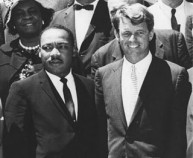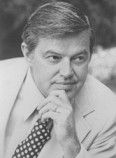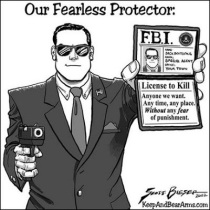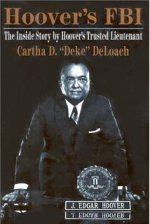Page under construction
FBI War Against Dr. Martin Luther King, Jr.
Supplementary Detailed Staff Reports On Intelligence Activities And The Rights Of Americans
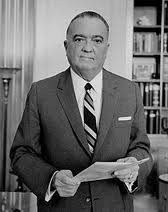 J. Edgar Hoover, FBI Director, sought to discredit Martin Luther King, Jr. and stop the Civil Rights Movement
J. Edgar Hoover, FBI Director, sought to discredit Martin Luther King, Jr. and stop the Civil Rights Movement
J. Edgar Hoover, FBI Director
Final Report of The Select Committee
To Study Governmental Operations
And Intelligence Activities
United States Senate
April 23, 1976
From December 1963 until his death in 1968, Martin Luther King, Jr. was target of an intensive campaign by the Federal Bureau of Investigation to "neutralize" him as an effective civil rights leader. In the words of the man in
charge of the FBI's "war" against Dr. King:
"No holds were barred. We have used [similar] techniques against Soviet agents. [The same methods were] brought home against
any organization against which we were targeted. We did not differentiate. This is a rough, tough business."
The FBI collected information about Dr. King's plans and activities through an extensive surveillance program, employing nearly every intelligence-gathering technique at the Bureau's disposal. Wiretaps, which were initially approved by Attorney General Robert F. Kennedy, were maintained on Dr. King's home telephone from October 1963 until mid-1965; the SCLC headquarter's telephones were covered by wiretaps for an even longer period. Phones in the homes and offices of some of Dr. King's close advisers were also wiretapped. The FBI has acknowledged 16 occasions on which microphones were hidden in Dr. King's hotel and motel rooms in an "attempt" to obtain information about the "private activities of King and his advisers" for use to "completely discredit" them.
Select Committee to Study Governmental Operations with Respect to Intelligence Activities ("Church Committee")
From the Select Committee to Study Governmental Operations with Respect to Intelligence Activities
DR. MARTIN LUTHER KING, JR., CASE STUDY [...]
Adobe Acrobat document [7.6 MB]
The Church Committee on Intelligence Activities
Church Committee Wikipedia
The Church Committee is the common term referring to the United States Senate Select Committee to Study Governmental Operations with Respect to Intelligence Activities, a U.S. Senate committee chaired by Senator Frank Church (D-ID) in 1975. A precursor to the U.S. Senate Select Committee on Intelligence, the committee investigated intelligence gathering for illegality by the Central Intelligence Agency (CIA) and Federal Bureau of Investigation (FBI) after certain activities had been revealed by the Watergate affair. Read more
FBI COINTELPRO (an acronym for Counter Intelligence Program) was a series of covert, and often illegal, projects conducted by the United States Federal Bureau of Investigation (FBI) aimed at surveilling, infiltrating, discrediting, and disrupting domestic political organizations. Wikipedia
COINTELPRO tactics included discrediting targets through psychological warfare, planting false reports in the media, smearing through forged letters, harassment, wrongful imprisonment, extralegal violence and assassination. Wikipedia
J. Edgar Hoover's Suicide Letter to Dr. Martin Luther King, Jr.
- FBI's Vicious Letter To King Holds Lessons On Surveillance, Hindsight; National Public Radio, by Sam Sanders
- What an Uncensored Letter to M.L.K. Reveals, The New York Times, by Beverly Gage, Nov. 11, 2014
- Suicide letter to Dr. King, and transcript, Letters of Note
- Report of the Select Committee on Assassinations of the U.S. House of Representatives, National Archives
- The FBI vs. Martin Luther King: Inside J. Edgar Hoover’s "Suicide Letter" to Civil Rights Leader, Democracy Now
J. Edgar Hoover-FBI suicide letter to ML[...]
Adobe Acrobat document [106.3 KB]
Inside J. Edgar Hoover's FBI: Secrets, Myths, History, Investigations, Career, Director (1995)
C-Span2 Booknotes interview by Brian Lamb of Cartha D. "Deke" DeLoach
Mr. DeLoach, a former FBI Deputy Director under J. Edgar Hoover, talked about his recently published book, Hoover's FBI, published by Regnery. It focuses on the FBI during the controversial tenure of J. Edgar Hoover. It attempts to disprove the many allegations against Mr. Hoover, including his sexual behavior and secret files.
YouTube video published Jun 19, 2014
Wikipedia, https://en.wikipedia.org/wiki/J._Edgar_Hoover
John Edgar Hoover (January 1, 1895 -- May 2, 1972) was the first Director of the Federal Bureau of Investigation (FBI) of the United States. Appointed director of the Bureau of Investigation—predecessor to the FBI—in 1924, he was instrumental in founding the FBI in 1935, where he remained director until his death in 1972 at age 77. Hoover is credited with building the FBI into a larger crime-fighting agency, and with instituting a number of modernizations to police technology, such as a centralized fingerprint file and forensic laboratories.
Late in life and after his death Hoover became a controversial figure, as evidence of his secretive actions became known. His critics have accused him of exceeding the jurisdiction of the FBI. He used the FBI to harass political dissenters and activists, to amass secret files on political leaders, and to collect evidence using illegal methods. Hoover consequently amassed a great deal of power and was in a position to intimidate and threaten sitting Presidents.
According to President Harry S. Truman, Hoover transformed the FBI into his private secret police force; Truman stated that "we want no Gestapo or secret police. FBI is tending in that direction. They are dabbling in sex-life scandals and plain blackmail. J. Edgar Hoover would give his right eye to take over, and all congressmen and senators are afraid of him".
While Hoover had fought bank-robbing gangsters in the 1930s, anti-communism was a bigger focus for him after World War II, as the cold war developed. During the 1940s through mid-1950s, he seemed to ignore organized crime of the type that ran vice rackets such as drugs, prostitution, and extortion. He denied that any mafia operated in the U.S. In the 1950s evidence of Hoover's unwillingness to focus FBI resources on the Mafia became grist for the media and his many detractors. The Apalachin Meeting of late 1957 changed this; it embarrassed the FBI by proving on newspaper front pages that a nationwide mafia syndicate thrived unimpeded by the nation's "top cops". Hoover immediately changed tack, and during the next five years, the FBI investigated organized crime heavily. Its concentration on the topic fluctuated in subsequent decades, but it never again merely ignored this category of crime.
Hoover's moves against people who maintained contacts with subversive elements, some of whom were members of the civil rights movement, also led to accusations of trying to undermine their reputations. The treatment of Martin Luther King, Jr. and actress Jean Seberg are two examples. Jacqueline Kennedy recalled that Hoover told President John F. Kennedy that King tried to arrange a sex party while in the capital for the March on Washington and told Robert Kennedy that King made derogatory comments during the President's funeral.[39] After trying for a while to trump up evidence that would smear King as being influenced by communists, he discovered that King had extramarital affairs, and switched to this topic for further smears.
Hoover personally directed the FBI investigation into the assassination of President John F. Kennedy. In 1964 just days before Hoover testified in the earliest stages of
the Warren Commission hearings, President Lyndon B. Johnson waived the then-mandatory U.S. Government Service Retirement Age of seventy, allowing Hoover to remain the FBI Director "for an indefinite
period of time." The House Select Committee on Assassinations issued a report in 1979 critical of the performance by the FBI, the Warren Commission, and other agencies. The report also criticized
what it characterized as the FBI's reluctance to thoroughly investigate the possibility of a conspiracy to assassinate the President.
Presidents Harry S. Truman and John F. Kennedy each considered dismissing Hoover as FBI Director, but ultimately concluded that the political cost of doing so would be
too great.[41]
Hoover's FBI investigated Jack Valenti, a special assistant and confidant of President Lyndon Johnson, in 1964. Despite Valenti's two-year marriage to Johnson's personal secretary, the investigation
focused on rumors that he was having a gay relationship with a commercial photographer friend.[42]
Hoover maintained strong support in Congress until his death at his Washington, D.C., home on May 2, 1972, from a heart attack attributed to cardiovascular disease.[43] His body lay in state in the Rotunda of the U.S. Capitol, where Chief Justice Warren Burger eulogized him.[44]
President Richard Nixon delivered another eulogy at the funeral service in the National Presbyterian Church. Nixon called Hoover "one of the giants. His long life brimmed over with magnificent achievement and dedicated service to this country which he loved so well." Hoover was buried in the Congressional Cemetery in Washington, D.C., next to the graves of his parents and a sister who died in infancy.

